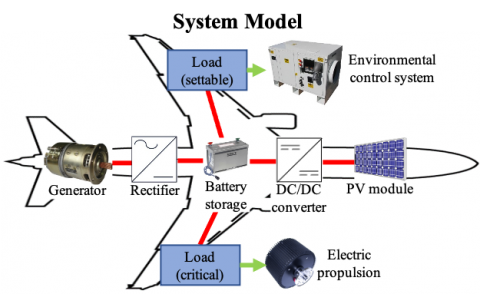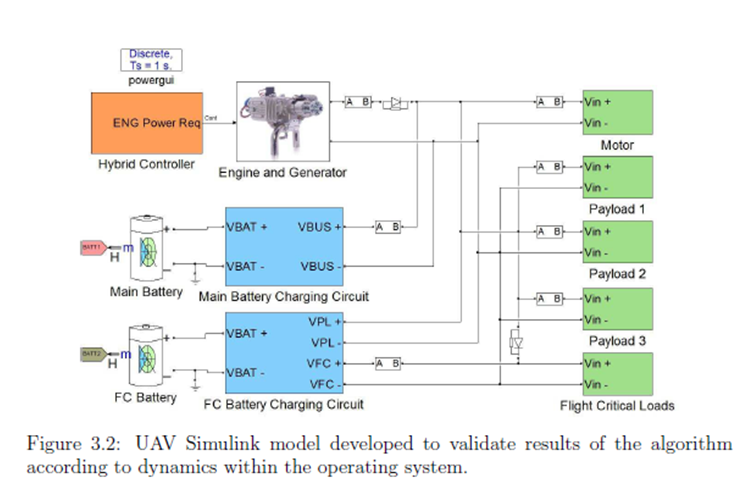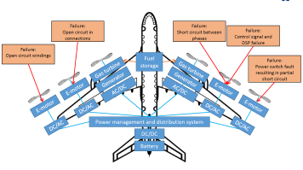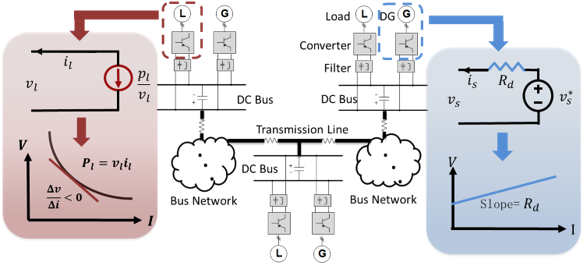Background
Unmanned Aerial Vehicles (UAV) have continued to receive attention from corporations and governmental agencies due to their wide range of potential applications and hybrid nature. More Electric Aircraft (MEA) promise many benefits (e.g., reduced weight, decreased fuel consumption, and high reliability) and their development continues to be the trend. Hybrid UAVs are an ideal prototype to implement concepts of aircraft electrification due to their small size and the direct current nature of their power systems. However, papers addressing the energy optimization UAV electric power systems fail to consider the importance of high accuracy and computational speed.
Innovation
Emerging and future aviation platforms will demand ever increasing amount of electric power. Constant power loads on a high-voltage, direct current (HVDC) distribution can cause dynamically negative resistance resulting in poor power quality and/or loss of system stability. To increase the durability and reliability, energy distribution needs to be well optimized at multiple sources to pay loads and critical loads. This program addressed the challenges and research needs in the control of the aviation electrical power systems (EPS). The team developed an energy optimization method to enhance the energy durability of a UAV through a novel approach integrating an optimization formulation and a detailed UAV simulation model, with physical circuitry characteristics. The efficacy of this method was proven on a realistic UAV system.
Commercial Goals/Results
Designed robust and optimal control methods for UAV systems.
Developed innovative condition-monitoring, diagnosis and control techniques.
Designed defense techniques against cyber-threat to power systems.
Developed energy-efficient operation methods for electric ship platforms.






